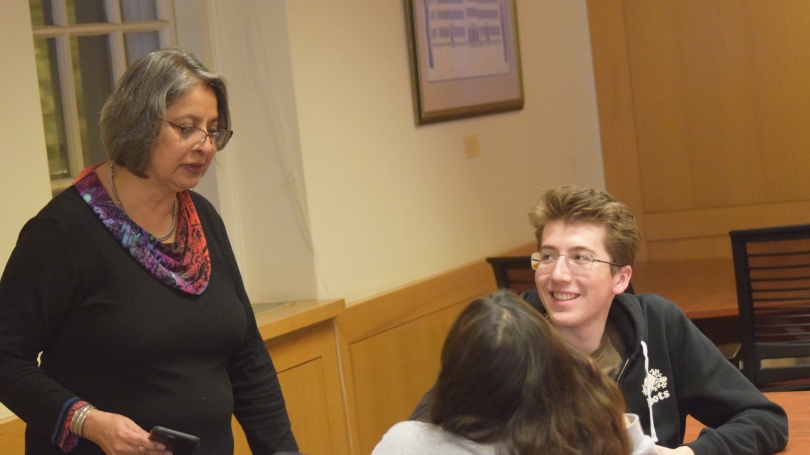
- Public Policy
- Leadership
- Funding
- News & Events
- About the Center
Back to Top Nav
Back to Top Nav
Back to Top Nav
Back to Top Nav
Growing up, I was always fascinated observing Russia and America engage in a power struggle within the world. As someone who grew up with an American upbringing in a Russian household, I could not understand why these two cultures were always exchanging various undiplomatic tit-for-tats. If the Russian and American parts of me were able to peacefully coexist, why was that not mirrored in the real world?
I came to later learn the various reasons as to why this conflict continued to take place (political tensions post-Cold War, etc.), but I still could not come to understand the lack of cultural appreciation and understanding that people continued to have, from both the East and the West. Just as there were times where people in Russia were inconsiderate of my American culture, there were equally as many times where Americans were inconsiderate of my Russian culture.
Whether it was making rash, stereotypical comments, not being willing to recognize a certain custom I have, or being ignorant of my dual identity, I have questioned (far too many times) whether or not I would ever feel comfortable being a “Russian-American” in my day-to-day life.
Admittedly, I know that reaching this idealistic situation will be impossible. However, as we discussed in RGLP, I know it is important to consider the cultural background of everyone, especially in the context of leadership, to ensure a collaborative, efficient, and supportive team.
Rather than criticize others for their differences, it is important to embrace them. Rather than condone ambiguity, it is important to learn to tolerate it. Rather than let cross-cultural experiences divide us, it is important to let them unite us. This does not necessarily mean we need to learn to “become one” with a different culture, but it is important that we accept the dissimilarities, and adapt accordingly.
Even if we try to avoid making stereotypes, implicit bias will probably dictate our lives, no matter how hard we try. Rather than let it dictate our life, however, it is critical that we recognize its occurrence, no matter how frequent (or infrequent) it occurs.